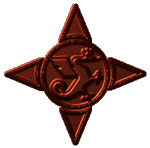he
streets which are at the foot of the fortifications form a little village with
a strong personality.
The
two main streets are the Rue de la Barbacane (Barbican Street) and the
Rue de la Trivalle, we often call "la Trivalle". Restaurants,
cafés, antiques, exhibition houses, this "village" also has
much to offer.
Every year in september
takes place on "la Trivalle" a big flea market. All the inhabitants
gather in the street, eat, drink, sing, dance, buy and sell all kind of stuff
in a very friendly atmosphere.
But there are other reasons
to saunter along la Trivalle. Mansions, chapels are scattered along this street,
which is moreover one of the oldest in Carcassonne.
The
bell tower of the ancient Ste Marie du Sauveur Chapel dominates the roofs
of la Trivalle. It was reconstructed in the 16th century on the site of Carcassonne's
very first cathedral. Pope Urbanus II preached here in 1096 !
A
little bit further don't miss Montmorency's House. This nice house with
wooden framings was recently renovated and very well highlighted. Its name comes
from the Wars of Religions, when the Cité was catholic and the Lower
Town was protestant.
Montmorency's
House is away from the main touristic sites, so you could walk near it without
even seeing it. But it is really worth walking a few metres more and discover
this beautiful 16th century house with its circular turret.
On
the way up to the Cité a very long fresco unwinds the medieval history
of the Cathar Country and the Crusade. It was made by artists coming from Lyon
and who are specialized in painted walls. All those beautiful designs help understand
the events that took place here in the 13th century and changed the destiny
of the Languedoc.
Finally, the Hôtel
de Pelletier du Claux is a nice mansion situated in the middle of la Trivalle.
During the Middle Ages this house belonged to businessmen who enriched thanks
to textile industry and trade and who were even ennobled. La Trivalle sheltered
woollen fabrics for centuries.
The mansion was rebuilt
after the Wars of Religions, la Trivalle had to suffer from these wars, being
plundered several times.
La Trivalle and the Castle
The Aude river & the Island



